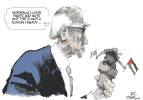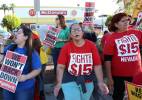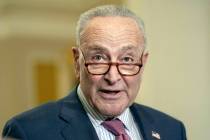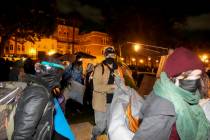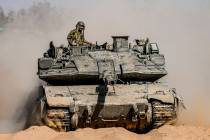Nun says Boston bomber Tsarnaev ‘sincerely remorseful’
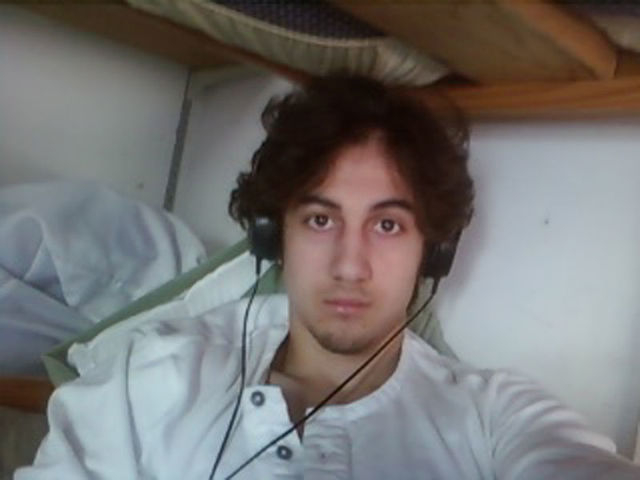




Despite prosecution attempts to keep her off the stand, well-known death penalty opponent Sister Helen Prejean told a jury Monday that she has met with Boston bomber Dzhokhar Tsarnaev and “absolutely” believes he is remorseful for his crimes.
“He said it emphatically. He said, ‘No one deserves to suffer like they did,’ ” Prejean testified. “I had every reason to believe that he was taking it in and was genuinely sorry for what he did.”
She was the last of dozens of witnesses called over eight days by the defense in a bid to spare Tsarnaev from the death penalty. The court permitted her to testify after a lengthy debate between the prosecution and defense team.
A Roman Catholic nun, Prejean rose to fame after the success of her book and the subsequent 1995 film adaptation, “Dead Man Walking.”
She has met Tsarnaev five times in jail, she said. The first meeting was in early March, as his trial began, and the most recent meeting was a few days ago.
“I’m not sure he’d ever met a nun before, but he was very open and receptive. It was pleasant,” she said, adding that she detected pain in his voice as they spoke.
The two discussed religion, including the differences between Catholicism and Islam, and Tsarnaev appeared sincere when he told her he was sorry for what he’d done, she testified.
Prejean’s testimony marked the first time the public has heard Tsarnaev’s thoughts about the bombing.
Tsarnaev showed little emotion as victims — such as Jessica Kensky, who underwent her second leg amputation in January and still has shrapnel in her body — testified about the horror they experienced the day of the Boston Marathon bombing and the suffering they continue to endure.
On cross-examination, prosecutors asked Prejean if her stance on capital punishment influenced her chats with Tsarnaev and if her speaking fees helped support the work of her death row prison ministry.
Prejean said she was paid “not a dime” by Tsarnaev’s attorneys and reiterated that she is “absolutely” certain that Tsarnaev is “sincerely remorseful.”
Her reason for meeting with Tsarnaev was simple, she said: “For the same reason I visit with other people who have done really terrible crimes — just to accompany them and be with them.”
The defense rested after Prejean’s testimony. Jurors appeared to listen closely when the prosecution then called two witnesses to testify about the restrictions that would be placed on Tsarnaev if he were incarcerated in Colorado’s ADX Florence, a supermax penitentiary known as the “Alcatraz of the Rockies.”
Tsarnaev’s mail and conversations would be monitored at all times, warden John Oliver testified. He might at some point be able to get a prison job, such as cleaning showers, or move into the general population, Oliver said, but the level of freedom he’d enjoy could be determined only by the Justice Department and the agencies that investigated and prosecuted Tsarnaev, not the prison staff.
The prosecution rested following the testimony, and Judge George O’Toole sent the jury home. Court resumes Wednesday morning with closing arguments; the prosecution then will have a final rebuttal before the jury begins its deliberations.
The trial has been lengthy. Jury selection began in January and testimony in March. Tsarnaev was found guilty on April 8 of all 30 counts against him.
Seventeen of those counts — involving the deaths of marathon spectators Krystle Campbell, Lingzi Lu and Martin Richard, and MIT police officer Sean Collier — carry a sentence of either life in prison without parole or death by lethal injection.
The defense has sought to humanize Tsarnaev, 21, in the eyes of the jury. Witnesses have told the story of a Muslim boy raised in a volatile Russian immigrant family who struggled to adjust to life in the United States as his father slipped into mental illness.
His teachers and high school and college friends say they never suspected the “laid-back,” “kind,” and “caring” Tsarnaev they knew was steeping himself in jihad and plotting mayhem.
But by the time Tsarnaev graduated from high school, his mother and older brother Tamerlan, both known as flashy dressers, began wearing conservative Muslim attire. An imam testified that Tamerlan once interrupted prayer services at a mosque, calling the imam a “hypocrite” because he compared the Rev. Martin Luther King Jr. to the Prophet Mohammed.
Tamerlan Tsarnaev also was spending hours on his computer, downloading and sharing radical jihadist material with his wife and brother, according to testimony.
The defense painted Tamerlan Tsarnaev as the mastermind of the bombing and said he bullied his little brother, a college sophomore, to help plant the homemade pressure cooker bombs in the crowd near the marathon finish line.
Tamerlan Tsarnaev died days after the 2013 bombing following a gunbattle with police and being hit by a car that his brother was driving.
The defense case included testimony about Chechen history, the Tsarnaev family’s history and the battle between passion and reason that takes place in the adolescent brain. It also included testimony from teachers, coaches and friends. An array of photos showed Dzhokhar Tsarnaev as a child in class or on school field trips. He was shown, as a teen, holding a teacher’s baby and interacting with a friend’s dog at a backyard barbecue.
As yet unexplained is how the boy and teen liked by all evolved into what prosecutors portray as a terrorist so heartless that he planted his bomb behind a row of children, and stood waiting for four minutes before slipping away into the crowd as it exploded.
It has been nearly impossible to gauge his reaction in court. Most of the time, he looks like a bored student in class, but he was seen wiping away tears as one of his Russian aunts sobbed uncontrollably on the witness stand.
Dzhokhar Tsarnaev didn’t testify at his trial or the sentencing phase. As their deliberations begin, jurors will be left to wonder how he became the person who wrote these words while hiding in a boat after the police gunbattle:
“The U.S. Government is killing our innocent civilians. … I can’t stand to see such evil go unpunished, we Muslims are one body, you hurt one you hurt us all. … Now I don’t like killing innocent people, it is forbidden in Islam. Stop killing our innocent people and we will stop.”
The jurors will also be left to wonder whether he still believes them.







